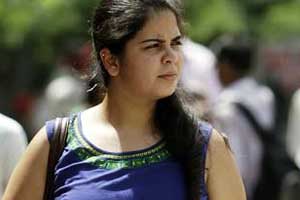Paving the way for a single entrance exam for medical admissions, a five-judge Constitution Bench of the Supreme Court on Monday recalled its 2013 order which had held the all-India common entrance test—the National Eligibility cum Entrance Test (NEET)—for admission to MBBS, BDS and various post-graduate courses as “illegal” and “unconstitutional”, since it interfered with the right of private, minority and linguistic institutions to admit students.
The Bench, which is now headed by Justice Anil R Dave, said that the 2-1 majority verdict of 2013 required “reconsideration” and that the validity of NEET would be examined afresh.
Justice Dave, who has written the recall order, had then dissented from the majority view of Chief Justice Altamas Kabir and Justice Vikramajit Sen, recording lack of deliberation due to paucity of time among the three judges before the judgment was delivered on July 18, 2013—Justice Kabir’s last day as a judge.
While authoring the dissenting judgment, Justice Dave had described NEET as a “boon” to aspiring medical students, while Justice Kabir, writing for the majority, had questioned the Medical Council of India’s power to hold a common test and said that “the right to admit students in different educational and medical institutions was an integral part of the right to administer and it could not be interfered with except in cases of maladministration or lack of transparency.”
The 2013 verdict had created a buzz in court corridors. Supreme Court advocate Gopal Sankaranarayanan, in his column on a social networking site, had correctly predicted in advance the eventual outcome. The lawyer, in fact, had noted that the Supreme Court corridor gossip for around a week had claimed knowledge that Kabir’s majority judgment would quash NEET, with Justice Dave in dissenting minority, as well as of the number of pages and paragraphs of the judgment.
The judgment, which came out later during that day, went almost as per his predictions. The article had led to allegations against Justice Kabir, who had then maintained that he had no knowledge about the leak.
The MCI and the central government had then challenged the 2013 order. Even an NGO, Sankalp, has sought review on the grounds that the judgment did not consider the Supreme Court’s own decision in the cases of Preeti Srivastava and P Inamdar, which was delivered by a seven-judge Bench, where it was held that no state interference would be allowed if a private institution’s examination system was “fair, transparent and non-exploitative.” The review also rested on Justice Dave’s minority judgment and cited another connected matter, involving Modern Dental College and the state of Madhya Pradesh, which was pending before a five-judge Bench. The question was about the limit of state interference in the fees and admission to private unaided professional colleges in Madhya Pradesh.
However, several state governments—including Andhra Pradesh, Karnataka, Kerala and Tamil Nadu—opposed the review, saying that NEET infringed upon their right to keep education a State subject. Among those opposed to NEET were also private minority managements like Christian Medical College, Vellore, which admits 85% of students through community and church-sponsored networks.
In fact, even Tamil Nadu chief minister J Jayalalithaa had written to Prime Minister Narendra Modi, urging him to direct the ministry of health and family welfare to withdraw the review petition filed in the Supreme Court. She had said that NEET “would adversely affect the interests of students in the state—in particular those from weaker sections and from rural areas—as it infringes upon the state’s right to determine admission policies to medical educational institutions.”
The Indian Medical Association (IMA) has welcomed the decision to bring back NEET. Dr SS Agarwal, national president, IMA, has said the decision “will help safeguard the sanctity of medical profession and make it more accountable, transparent and effective.”
According to lawyer Gaurav Sharma, one common test at an all-India level will bring much-required relief for students, as multiple tests in different colleges at different times and in different states cause much hardship to them. It will not only regulate medical education, but will also bring in standardisation and check corrupt practices.
By conducting their own entrance tests, many private institutions are selecting academically-weaker but financially-sound candidates. With NEET, unscrupulous and money-minded businessmen entering and operating in the field of education will diminish, says Supreme Court lawyer MR Shamshad.
Experts feel the government must expand its capacities as private colleges are necessarily going to be out of bounds for meritorious middle class and poor students. An all-India entrance exam is likely to set better standards than those administered by states and private medical colleges. At the end of the day, the country needs better doctors.
indu.bhan@expressindia.com


